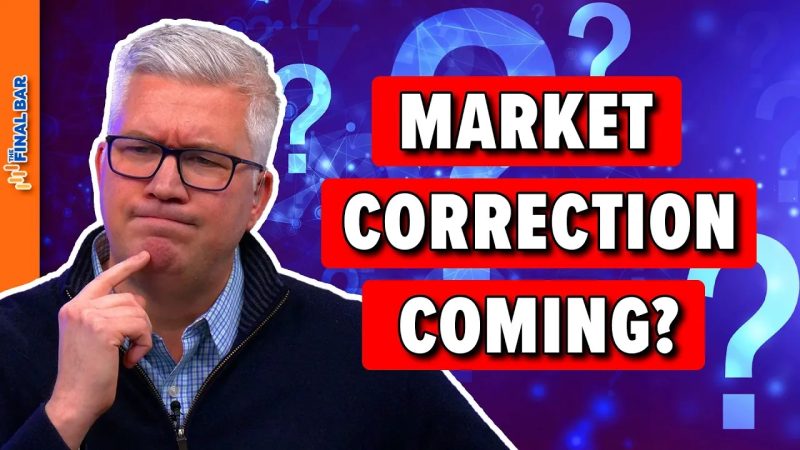In the world of investing, market volatility is a common occurrence that can leave even the most seasoned traders on edge. Recently, a notable uptick in the VIX, also known as the CBOE Volatility Index, has raised concerns among investors about the possibility of a market correction on the horizon. But is a market correction really imminent, or is this just a temporary spike in volatility?
The VIX is often referred to as the fear gauge of the stock market, as it measures market expectations for volatility in the near future. When the VIX spikes, it typically indicates that investors are becoming more uncertain or anxious about the market outlook. In the article on Godzilla Newz, the author delves into the recent increase in the VIX and its implications for the broader market.
One key point highlighted in the article is the relationship between the VIX and market corrections. Historically, spikes in the VIX have been associated with periods of market turbulence, often preceding market downturns. This connection has led many investors to view the VIX as a leading indicator of potential market corrections.
However, it is important to note that the VIX is not a crystal ball, and its predictive power is not foolproof. While a spike in the VIX can signal heightened market uncertainty, it does not necessarily guarantee a market correction. There have been instances in the past where the VIX spiked without a subsequent market downturn, highlighting the limitations of relying solely on volatility measures for market timing.
Moreover, market corrections are a natural part of the investing cycle and can occur for a variety of reasons, including economic indicators, geopolitical events, or market sentiment. Attempting to time the market based solely on volatility signals can be a risky strategy, as market movements are influenced by a myriad of factors that are difficult to predict.
As highlighted in the article, investors should take a holistic approach to managing their portfolios and not overreact to short-term fluctuations in the VIX. Diversification, risk management, and a long-term investment horizon are key principles that can help investors navigate market volatility and mitigate potential risks.
In conclusion, while a spike in the VIX can be a cause for concern among investors, it is essential to maintain a rational and disciplined investment approach. Market corrections are inevitable, but trying to time the market based on volatility alone is a challenging and uncertain endeavor. By focusing on sound investment principles and staying informed about market dynamics, investors can better weather market fluctuations and achieve their long-term financial goals.

